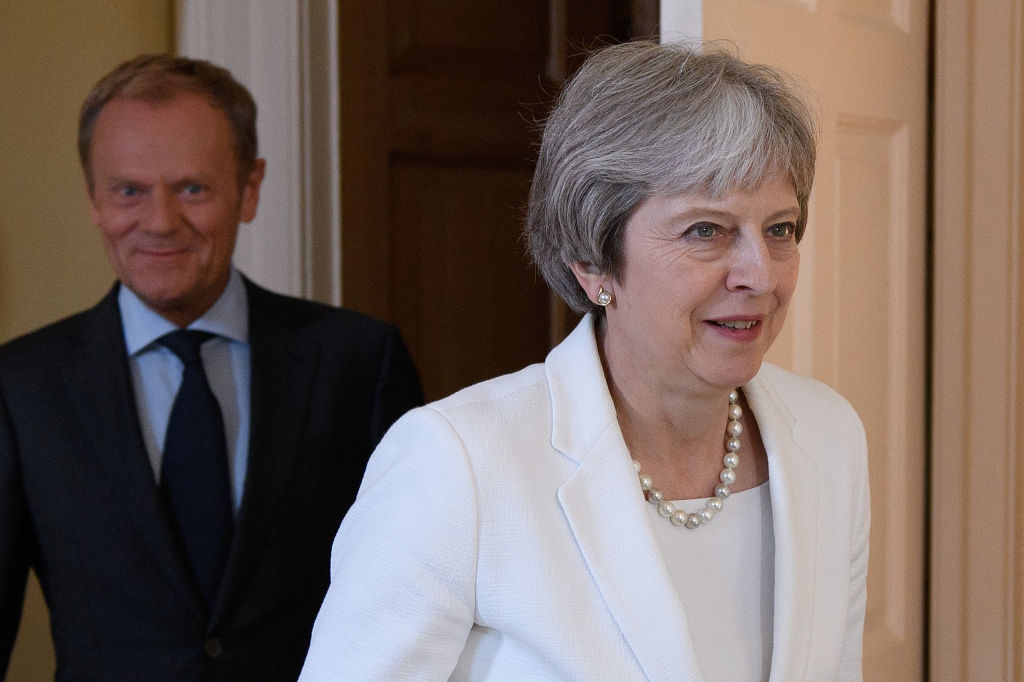At Chequers over the next couple of days Theresa May, along with her chief Brexit-sceptic ministers Philip Hammond and Greg Clark, will attempt to convince others to agree to a soft Brexit. The latest thinking, according to reports today, is that the UK would more or less remain in the single market for goods but would face greater restrictions on trade in services. There would also be some degree of freedom of movement, though it would be more restricted than at present.
A necessary compromise that will stave off the fear of ‘no deal’, or a cave-in which will hugely favour the EU? The problem is that the UK economy is hugely weighted in favour of services – while all developed economies have a bias towards services it is especially strong in Britain. Moreover, we are far better at exporting these services to the EU than we are goods. In 2016, we ran a £14 billion surplus in services with the rest of the EU, against a deficit of £96 billion in goods.
The deal that May appears to be trying to persuade her ministers to accept threatens to worsen our trade balance with the EU still further. It would allow the likes of German car-makers and French wine-makers to carry on selling their products in Britain as now, while making it more difficult for the UK financial services sector to sell its services in EU countries. It is true that we never have had a proper single market in services, but why would the government want to accept a lop-sided post-Brexit deal which so clearly favours EU interests over our own?
For the moment, the services sector is powering ahead. In the latest Purchasing Managers’ Index (PMI) the services sector had a score of 55.1 in June, up from 54.0 in May – where anything over 50 denotes expansion. The trouble is that the much smaller manufacturing sector tends to register more with the public, and possibly with ministers too. When Airbus or the Society of Motor Manufacturers and Traders moans about Brexit it tends to make a much louder noise than when, say, software companies complain about barriers to overseas trade.
If the cabinet does agree to a single market in goods but not services, however, you can expect the complaints from the services sector to grow rather louder. What might seem like an compromise at Chequers might seem a rather less neat solution next week.







Comments